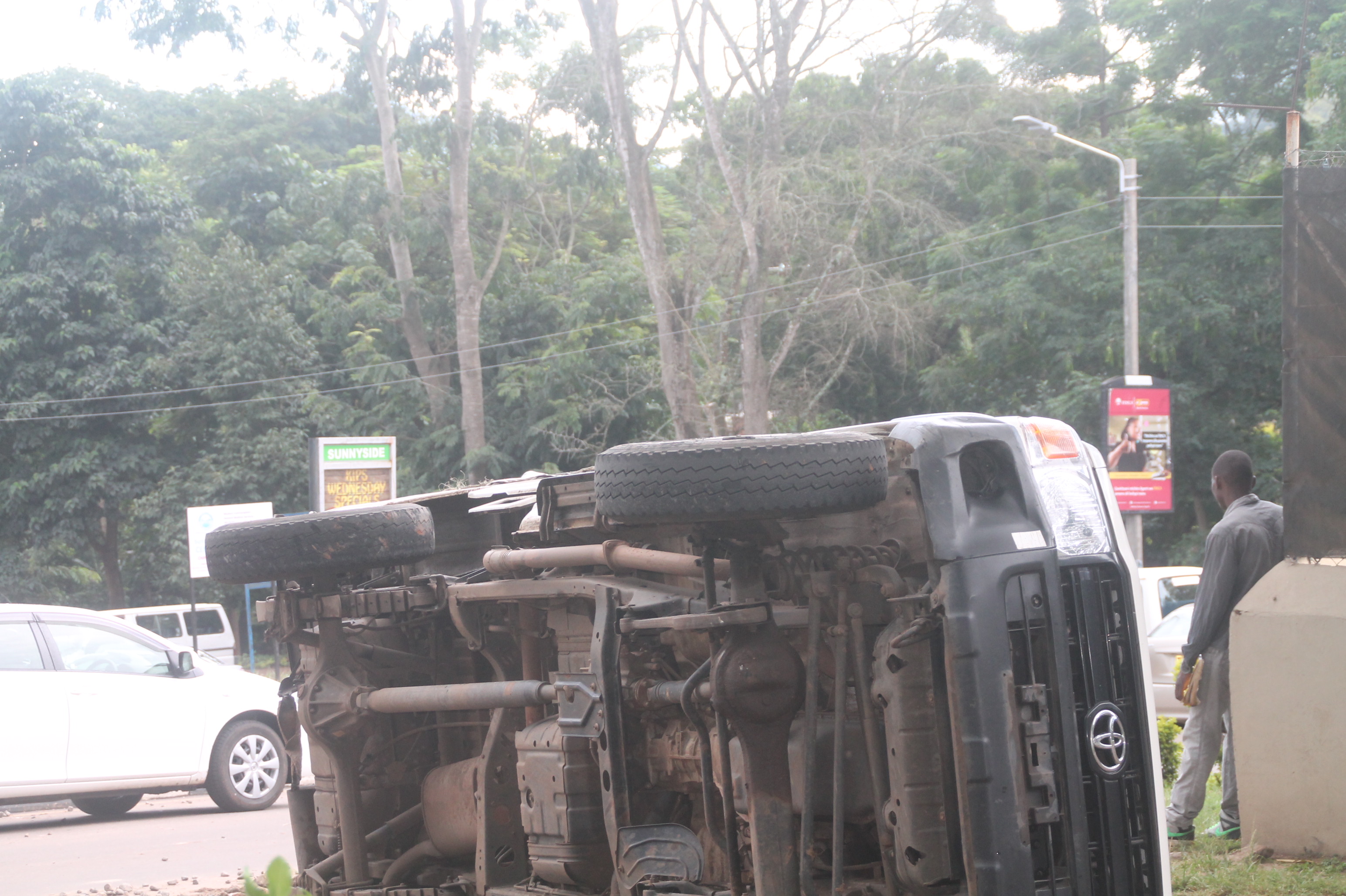By Steven GodfreyMkweteza
If all smallholder farmers were properly trained in modern farming technologies with an aim of increasing food security and income in their homes, Mathews Goba would not have abandoned farming for other enterprises in search for greener pastures.
Goba recently surprised people in his village when he abandoned farming for tailoring business, claiming the industry to him, was much better than farming.
“People could not believe their eyes and thought I had run mad. Some said I should be taken to mental hospital for treatment,” recalls the boisterous Goba, now settled at his home Magulugulu village in chief Malemia in Nsanje district.
Goba told this reporter: “People in my village could not understand how anyone in his right mind could stop six years farming for tailoring.”
The forty- five year old Goba complains that despite toiling for years, breaking his back in scotching weather and all his investments, his livelihood was not changing.
But what has been the root of his complaints?
“My yield has not been satisfactory enough for my food and income supplements. This has greatly affected and frustrated me,” says Goba.
Goba further says the meager earnings were slowly forcing object poverty to his livelihood, saying it was becoming so tough to fend for his family, let alone repay borrowed farm inputs.
The out- spoken Goba says lack of modern information on how best to grow crops was stifling his efforts to produce high quality varieties and add value to it so as to fetch high prices on the market
“Sometimes, I have been growing varieties that could not yield much and that were prone to pest and diseases,” Goba says.
In fact, Goba’s complaints are very common among the farmers across Malawi. According to experts, farmers in Malawi generally work hard but they do not maximize their produce because the current extension system is not reaching out sufficiently to farmers. This they say, potentially undermine the benefits of the various agricultural programmes as extension services are an important complementary programme in enhancing the production impacts.
For example, in a policy brief on the implementation on the 2012/13 farm input subsidy programme co- authored by then professor of economics at chancellor college Ephraim Chirwa and Andrew Dorward, only 11 percent of farmers received advice from field assistants in 2012/13, compared with 22 percent in 2006/07 and 14 percent in 2008 and 2011
Moreover, even though the research shows that access to extension services is significant in explaining productivity levels of both female and male headed households, the 2013 integrated household survey (IHS) analysis shows that access to extension services is biased against some segment of the farming population – poorest households, households with very young or very old heads, and those into limited formal education are less likely to access agricultural advice from extension agents.
The survey indicates that 40 percent of rural communities reported that extension they received on maize were worse when compared to five years earlier. Furthermore, focus group discussions with farmers revealed system wide deficits in knowledge, resources, and intra – agency communication. One example is the inadequate response to pest and diseases threats.
In many cases, initial early detention practices appeared to function as planned, but follow- through steps to manage outbreaks and prevent full- brown epidemics were not carried out due to inappropriate advice from extension officers, delays in obtaining needed inputs, and communication breakdowns
Over the year, public extension services have largely been under -funded while government has focused on implementing its flagship program in the agricultural sector, the farm input subsidy program (FISP). The program has resulted into mixed performance. For example, the low nutrient use efficiency (NUE) observed among the beneficiaries, which limited the productivity and development impact of the program. The somewhat inconsistent impact of FISP suggests to some expert inadequate provision of information to farmers on best agricultural production practices.
Experts noted that key extension workers in the country were not performing especially in the rural areas because of lack of motivation and poor working conditions which include poor remuneration, pressure of work due to acute shortage of staff, shortage of equipment and housing services.
Available data from the ministry of agriculture, Irrigation and water development (MOAIWD) suggest that there were about 1,900 extension agents in Malawi in 2011, with 1,000 vacant positions unfilled based on 2,900 established positions. Further, the data indicates that the farmers per extension agent ratio of Malawi is estimated to be between 1,800 and 2514 by 2015 – much higher than Ethiopia, Democratic Republic of Congo and Kenya, but much lower in Nigeria and India.
Based on its ratio, Malawi is considered among developing countries to be in the middle in term of the size of its extension staff in relation to its farming population.
The other major issue is the large imbalance in extension staff across districts. For example, the farmer- to public extension agent ratio ranges from 811 in Karonga to 2005 in Balaka. And, if other service providers are included, the ratio between 642 in Rumphi and 1,279 in Balaka. Other estimate show higher farmer to public agent ratios in Salima to 3,951 in Blantyre – According to 2015 government of Malawi and 2010 Institutional Development Across the agro food Sector (IDAF) statistics. The statistics further indicates that in some areas, there are no field extension staffs present.
On the other hand, the reports indicate that out of many extension workers that graduate in government institutions, only 70 percent go to the ministry of Agriculture while others migrate to other countries or join other private sectors or NGOs for greener pastures.
Experts attribute the problem to inadequate output from training institutions which, they say, are also not fully functional because of insufficient and inadequate findings.
“These factors combined with many new research projects and expanded NGO presence, have a net effect of siphoning large numbers of extension workers from an already fragile system,’’ says Dyborn Chibonga, the chief executive officer for national smallholder farmers association of Malawi NASFARM}).
Chibonga further pointed out that qualification and experience of those delivering extension services as the other factor that lead into community vulnerability.
He says since the discontinuation of certificate programs of natural resources and the current delivery of modules in many agricultural colleges, the country is faced with the challenges to provide the required quality extension messages.
This he says, therefore, leave farmers confused and fail to implement interventions that can promote adaptation as well as mitigation to climate change.
‘’In some cases, unskilled people are engaged to cover the gap. It is not night, for instance, for unskilled people to attend to farmers because that is the job of an extension worker and trained agricultural personnel,” says Chibonga.
In an interview, during the extension forum in Blantyre recently, Thomas Thauzeni, an extension development officer (AEDO) for Zunde agriculture extension planning area (APA) in Nsanje district said he at times attend to 3900 farmers.
“We are indeed very few of us and we hardly have time to rest. I attend to over 3900 farmers, so can an extension worker provide quality services in such a situation,” he asks, adding, in agriculture, extension is demand –driven, so we encourage them to be in groups for effective services.”
Thauzeni says for the extension workers to sustain their lives and work proffessionary; they beef up their meager salaries with other pieces work while shunning the official duty.
Extension services Reforms
Over the past decades, Malawi has undergone several reforms in its agricultural extension systems-from the master-farmer- scheme and the ‘’achikumbi’’or progressive farmer Approach of the 1950’s and 60’s to the farmer group in 1970’s to the training and visit (T and V) system in the 1980’s, to more recently, the passage of national extension policy in 2000 which emphasizes farmer demand stakeholder accountability, pluralism, coordination, quality in agricultural services provision.
Government also embarked on recommitment programme, albeit on a pilot phase, Malawi School Certificate of Education (M S C E) holders who went through on- the- job training programme at natural resources college (NRC) in a bid to overcome the challenge whereby most extension workers have been unwilling to work and live in the rural areas.
The trainees were required to work with farmers in rural areas and only go to NRC for training during normal semester breaks. The assumption was that having been recruited from the same areas; the trainees would be more willing to work there after graduation.
However, this programme did not improve the status of extension services as the graduates were not enough and most of them opted for greener pastures in non-governmental organizations.
The situation prompted the government to largely rely on non-governmental organizations, farmer to farmer organization (FBO’s), multilateral agencies and the private sector to offer extension services to farmers.
However, despite this emphasis and promotion of pluralism, the government still remains the main providers of advisory services for farmers in Malawi. Based on the 2013 integrated households survey (IHS), 27 percent of farming households reported accessing extension services through direct contact with government extension agents, 6 percent through NGO’s with only 2 percent receiving advice from the private sector.
The NGO’s that provide extension services consist merely of international NGO’s who can be considered more as donors than as local service providers. They function on external funding, usually operating within short-term project cycles. The sustainability of there efforts is a major issue.
In reality, there are only a few local services providers or FBO’s that provide extension services – according to 2012 research done by Charles Masangano and Dr Catherine Mthinda on pluralistic extension system in Malawi under IFPRI discussion paper.
The 2013 IH’s data further show that less than one percent of households accessed advice among FBO’s. This suggests that a major challenge remains in strengthening and supporting FBO’s to become effective extension service providers- This is despite the policy having a strong emphasis on capacity strengthening of FBO’s.
But what is government doing to address the extension services problems?
Government says it plans to reduce the extension worker- farmer ratio by 9:750 percent.
“We are aware that the extension workers are not enough. Right now, the ratio is very high hence government plans to bring it down to one extension worker against 40 farmers,” says Albert Changaya, the controller of agriculture extension and technical services in the ministry of agriculture, irrigation and water development.
Changaya, who attributed the high ratio to among others, population increase, disclosed that government has also embarked on a programme of recruitment and retention of current extension workers and attracting those that left sector to be deployed in the rural areas.
However, a well- known agriculturalist and former national coordinator for civil society agriculture network {CISANET} Tamani Nkhono-Mvula says training more extension workers cannot help matters but motivating them and improving their working conditions.
‘’These workers are not motivated. They use their own resources to move around, coupled with poor salaries and housing. Government should consider hardship allowances for extension workers in the rural areas, otherwise, the majority of extension workers will follow the footsteps of others,” he says.
He added that government should also enhance remuneration packages from donor funds on top of the recent salary increments in the civil servants parks.
Tamani urged farmers to utilize radio extensive services being offered by NGO’s, adding that government should also come up with modalities of harmonizing the system in the NGO’s.
In early 2015, during the extensive district- level consultations on content of a draft national agricultural policy, extension services were highlighted by stakeholders as the most important priority area for increasing agricultural productivity in Malawi. However, tough decision and bold action, rather than complacency and minor fixes, will be required to transform the extension system to one that contributes significantly to improved agricultural development outcomes.

.jpeg&w=60&q=100&h=60)




.jpeg&w=60&q=100&h=60)





